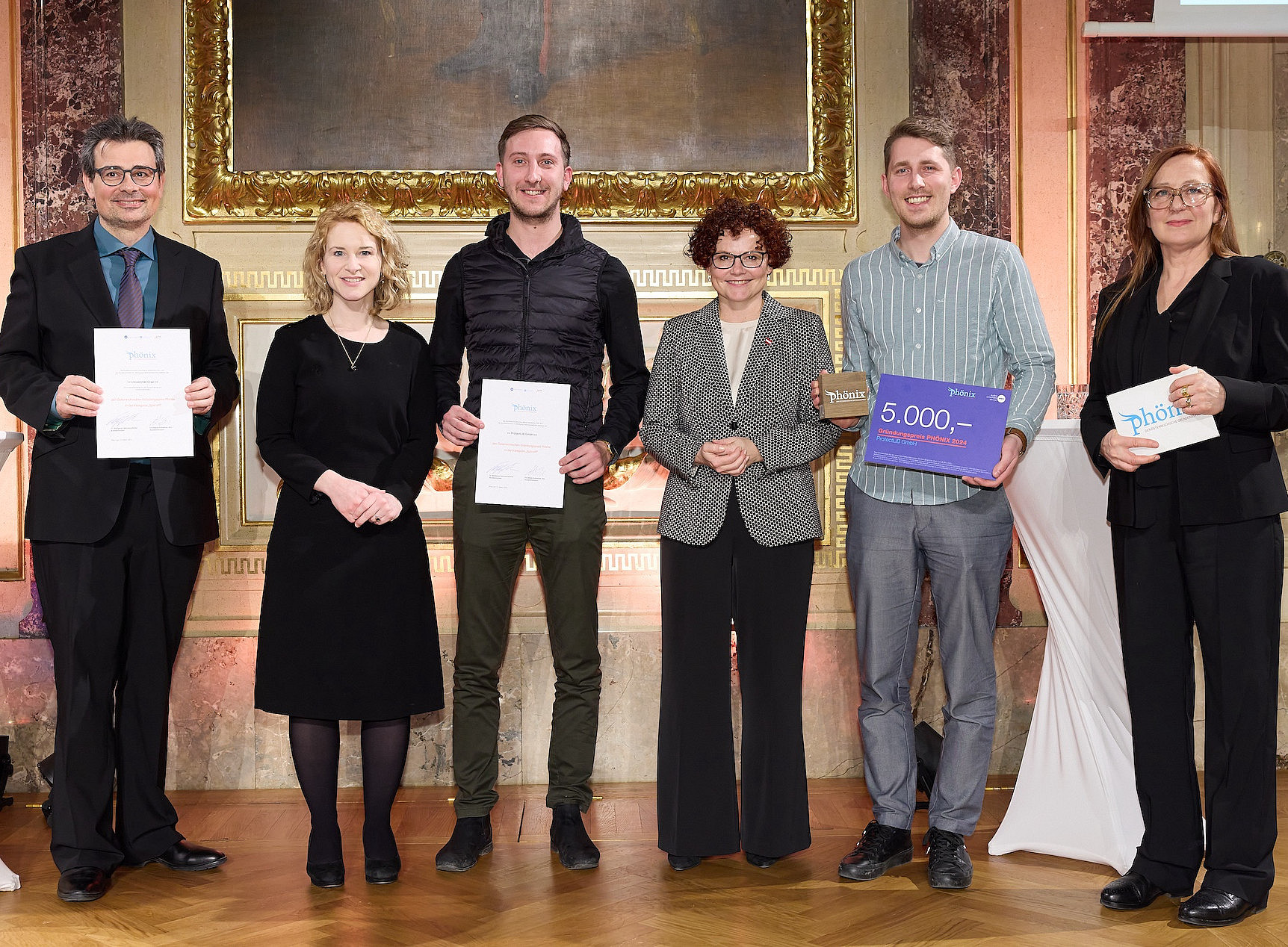University research is considered a guarantor of innovation. Many inventions from the laboratories find their way into the economy. Under the name ‘ProtectLiB’, Jürgen Abraham, Tobias Kopp and Chris Pichler developed a patented recycling process for batteries of electric cars – in the form of a compact recycling plant. This is the size of an ordinary container, so that vehicle batteries can be processed directly on site. On 12 March 2025, the invention was awarded the Austrian start-up prize PHÖNIX in the ‘Spin-offs’ category.
Electric cars are a central component of sustainable mobility. But what happens when an e-car is damaged or reaches the end of its useful life? While components such as the body, seats and fittings can be easily recycled, batteries pose a particular challenge. They power the vehicle for hundreds of kilometres, contain valuable raw materials, but are also prone to damage and can cause fires.
The solution lies in recycling – but that is easier said than done. Only a few disposal companies have the appropriate facilities for recycling lithium-ion batteries. In addition, secure transport is needed to get the old batteries there – a complex and costly process.
On-site recycling
Under the name ‘ProtectLiB’, Abraham, Kopp and Pichler developed a recycling plant the size of a container that can be used directly on site. ‘We can separate lithium, cobalt and nickel from the liquid electrolytes – without heat,’ Kopp explains. This brings a decisive advantage for customers: since the residual materials are no longer hazardous, both further processing and transport are considerably cheaper.
Prototype in the centre of Graz
The first prototype is located on the university campus and is ready for use. The founders are currently focusing entirely on batteries from the automotive sector. Mobile phone or laptop batteries are out of the question for the time being, because each battery has a different chemical composition. ‘A single solution for all is not so easy to implement,’ explains Kopp.
A first customer has already been acquired in the south of Graz. Kopp: ‘Battery prototypes for transport are being developed there. In the future, the company wants to recycle these directly on site using ProtectLib technology.’ A first step towards the sustainable recycling of batteries from the automotive sector.
The PHÖNIX award is organised by Austria Wirtschaftsservice GmbH (aws) in cooperation with the Federation of Austrian Industries (IV) and the Austrian Research Promotion Agency (FFG). A jury of experts selected the winners from 12 projects submitted in 2024, with 11 teams going into the final. The award was presented in four categories.
More information about the spin-off:
Information about the PHÖNIX start-up prize:
